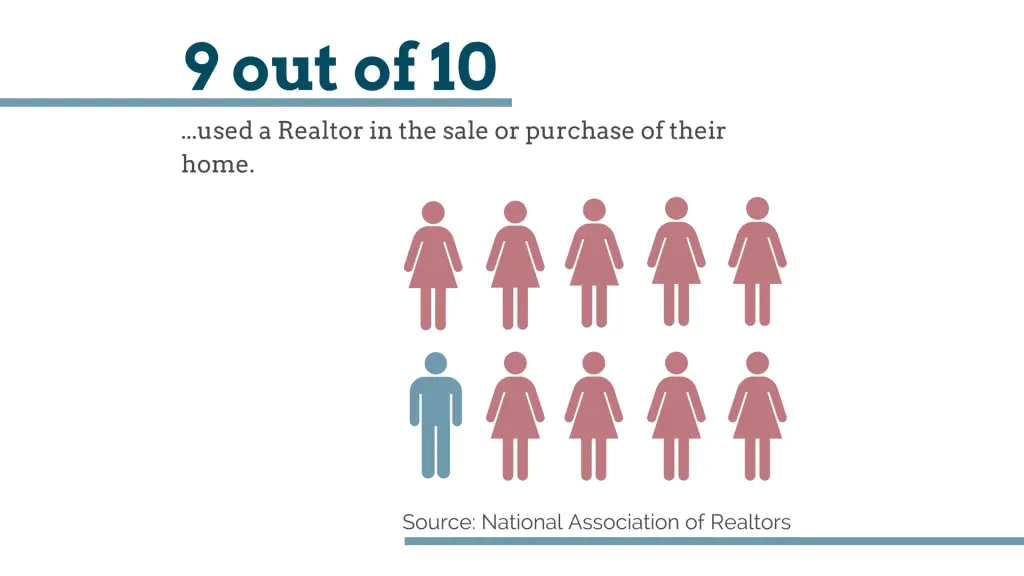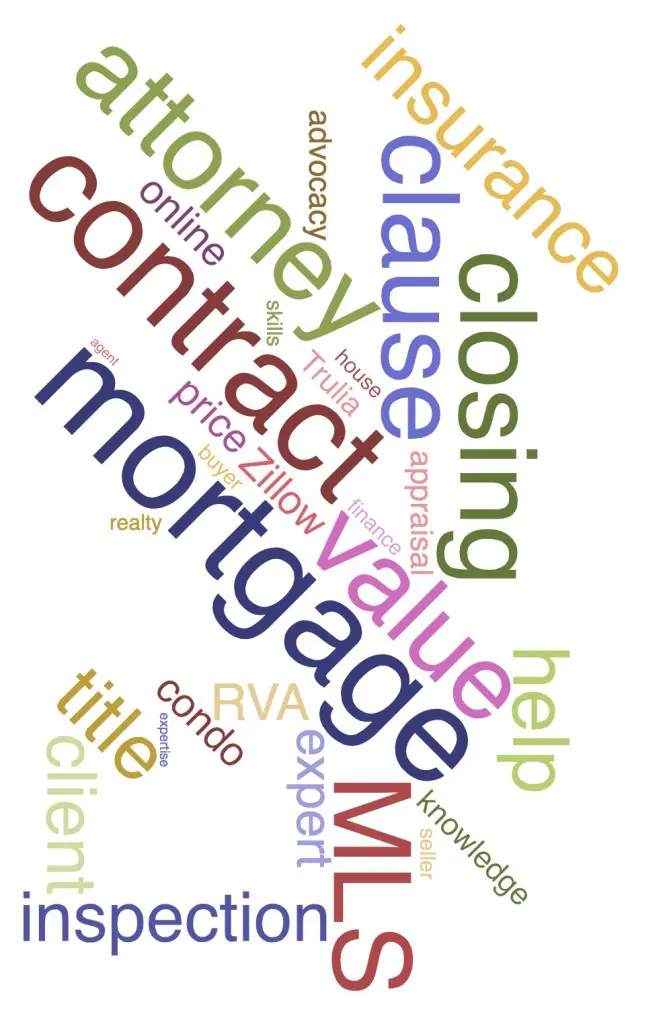 I wish to start this article out with a disclaimer — This is my opinion only and I do not speak for anyone else. I also know that these comments will probably generate some level of disagreement with those in my industry and I am OK with that.
I wish to start this article out with a disclaimer — This is my opinion only and I do not speak for anyone else. I also know that these comments will probably generate some level of disagreement with those in my industry and I am OK with that.
So here goes…
My industry is filled with three types of people
- Realtors
- Salespeople
- Agents
Lets discuss the differences.
The Realtor
Technically speaking, a REALTOR is a member of the National Association of Realtors and is licensed either as a broker or real estate salesperson. A Realtor will (ok, should) always abide by the Code of Ethics and is versed in all of the complicated agency, disclosure, and fair housing laws as well as the protocol for how to handle the inevitable grey areas that lie on the edge many sticky situations.
I have been involved in many deals where the cooperating broker, a Realtor in the purest sense of the word, spent more time on protocol than they did on the analysis of the market value. Their client, in my opinion, made a poor financial decision.
That said, I have also been involved in deals where the cooperating broker spent very little time on the technical part of their craft (the Realtor side, if you will) and put their clients at risk.
It cuts both ways.
Understand that in no way am I criticizing being a ‘Realtor,’ rather I am simply pointing out a Realtor (once again, in the purest sense) sees their world and the conflicts that comprise it through the lens of very a strict interpretation of proscribed rules and guidelines. Sometimes this protocol focus ignores the larger picture.
It is unfortunate.
The Salesperson
In the real estate industry (or any commissioned sales industry for that matter) there are sales gurus.
Attend any Mike Ferry Organization or Brian Buffini seminar (or Matt Ferrara, or Ben Kinney, or any other one of many and, in the interest of full disclosure, I have paid to see them all) and you will hear their ideas on how to make more money.
All of the scripts, activity goals, scheduling, etc. are all designed to increase the attendee’s earning potential.
Usually, a combination of increased people skills, basic scripts, and a diligent commitment to prospecting for new leads (via calling people you know and/or those you do not) should lead to increased income. Their (correct) theory is simply if you find more people to talk to and do a better job of telling them what they want to hear, you will increase your income. More opportunities x more skills = more income.
But at who’s expense?
The true salesperson, while they are doing nothing illegal or even immoral, hold their own ‘lead generation’ activities in the highest regard. Many times the teachings of the sales guru strongly suggest to NOT take any phone calls other than those related to prospecting for extended periods time each day. Closing issue? Call you back at noon. Termite not ordered? Please leave a message. Loan package is wrong? I am sorry, but Mr. Salesperson is busy right now.
Needless to say, it is not a client-centric philosophy.
Am I saying you should NOT hire the salesperson? No. I am saying that don’t be disappointed when your salesperson acts like one.
When the metrics of deal count and sales volume become the sole measuring sticks of success, then the advice offered must always be questioned as to who stands to benefit most.
That said, I have always found that those who are busy are usually busy for reason –– they are good at what they do. I have also found that a certain level of detachment and objectivity from my advisor comes from a certain level of financial achievement. Much of the best advice I have ever received came from folks who had little need for my business. Any advisor who needs my business, well, I am not sure their advice is best for me, either.
While the advice from the true salesman should be filtered and vetted, it is many times very accurate and based on a great deal of experience.
The Agent
The agent is a combination creature who is part Realtor, part salesperson, and part trusted advocate. Agents get deals done.
An agent, in my opinion, has a loyalty to the correct outcome for their client.
Agents may be very aggressive and disciplined in their lead generation practice (like the Salesperson) but still hold their client’s interests above their own. Agents fully understand the Realtor Code of Ethics (like Realtors) yet manage to adhere to these principles without getting in the way of the best outcome for the client.
At the end of the day, an agent will always try to help their client find the best available deal through the best available means.
An agent always asks themselves, is my client making a good decision? If they are making a bad deal, then they will try to talk them out of it. If they are making a good deal, they will try to keep them engaged in it –– all of the while conducting themselves in a manner consistent with the Code of Ethics.
They likewise are successful enough to be able to give competent advice without their own financial pressures influencing the recommendations.
Conclusion
I think it is pretty obvious by my tone that I feel the best person to hire in a real estate transaction is the AGENT. A good agent, like a good attorney, accountant, insurance broker, or mechanic, is someone who will be in your life for a long time. I know that those clients who consider me their ‘agent’ call me constantly with questions as mundane as ‘do you have a good leaf guy’ to as complex as ‘help me understand the legal aspects of non-compliance in a mandatory HOA.’
The all-time great speaker Zig Ziglar once said (and I paraphrase) that if you help enough people get what they want, you will always be taken care of. There is a lot of truth in that statement, especially in the real estate business. The ‘agent’ community in Richmond contains a great deal of talent whose ability to positively impact a transaction is robust.
Interview many and find the one who you would consider putting on your team for life.




















 So How Can You Tell the Professionals?
So How Can You Tell the Professionals?





